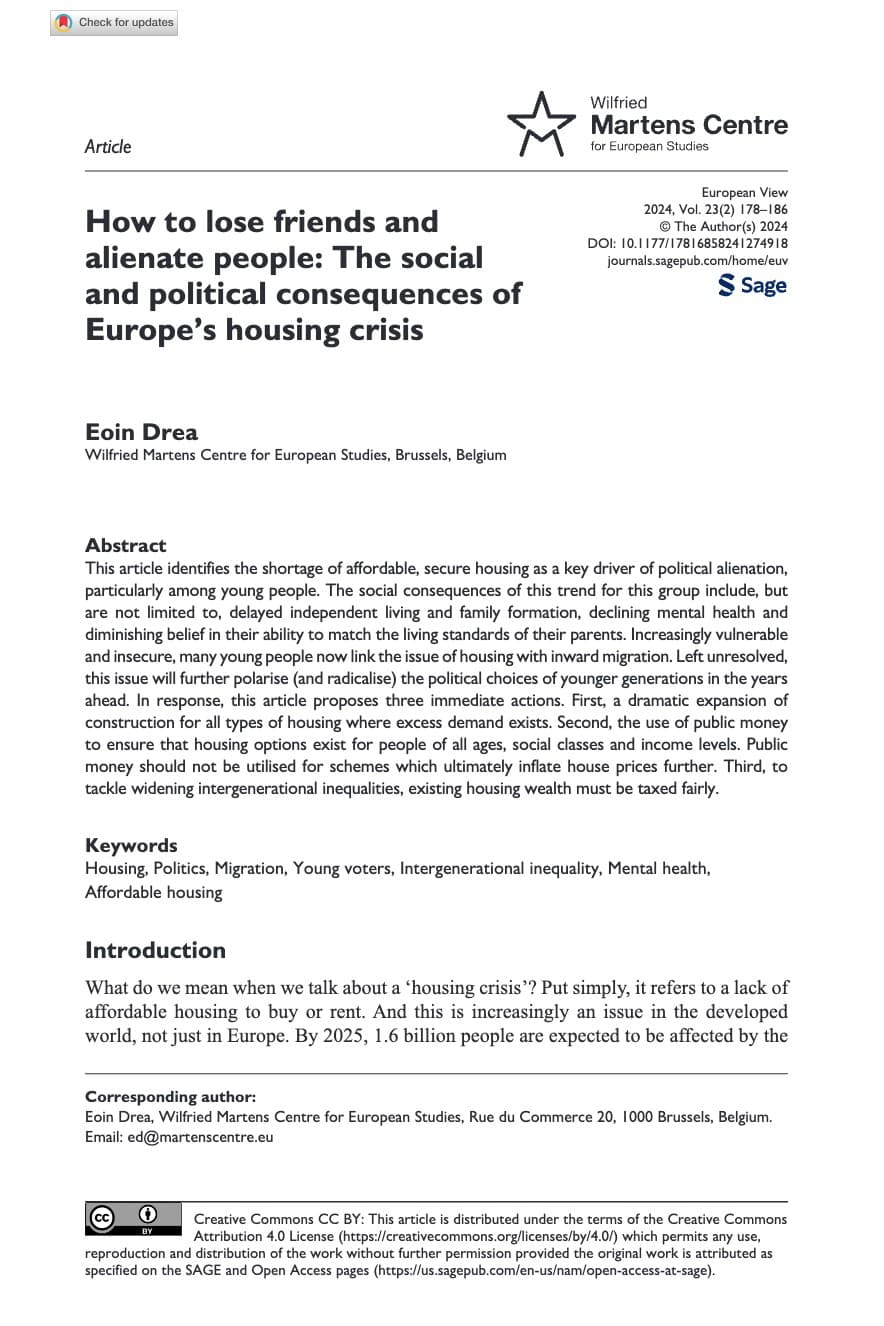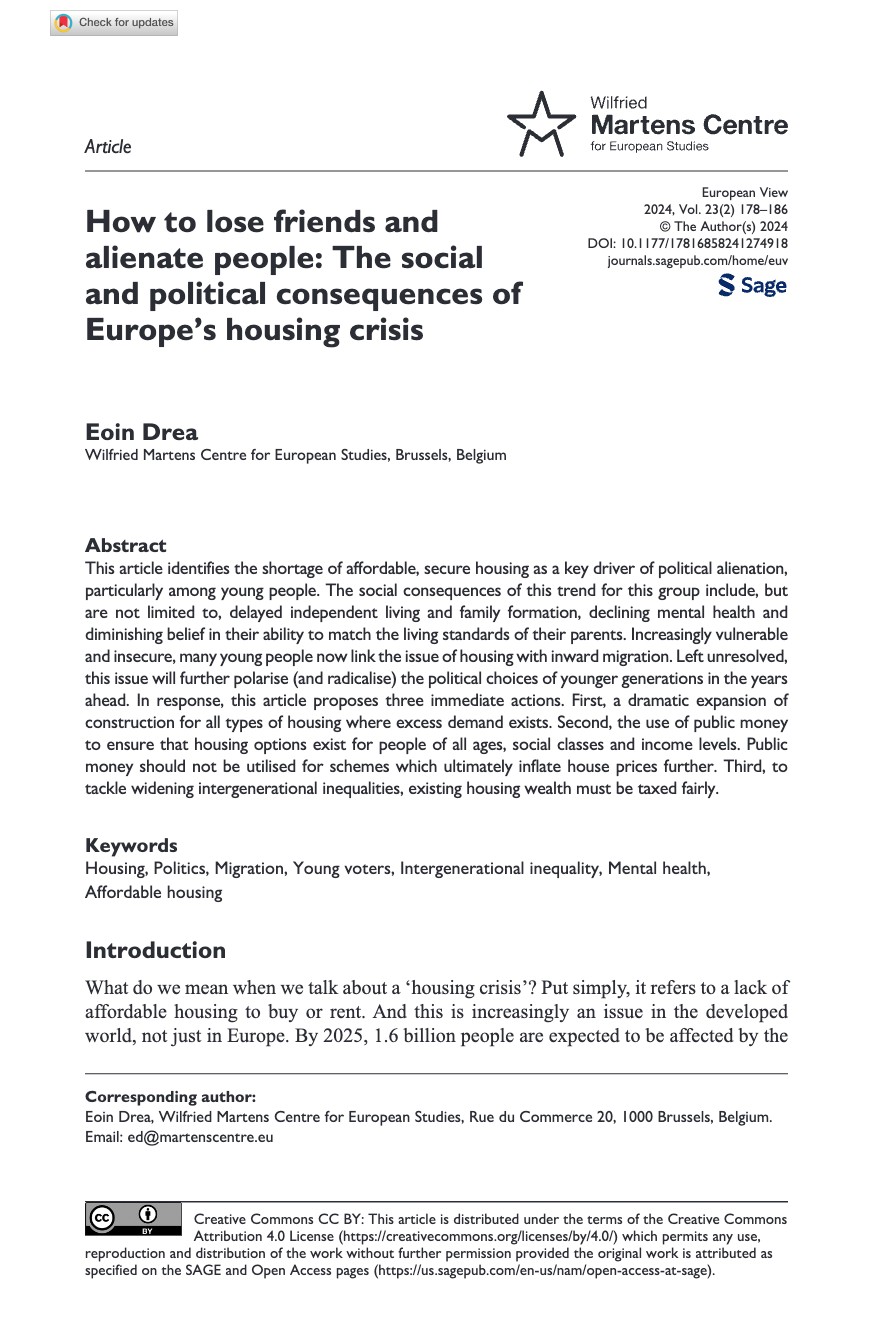AI-Generated Summary
Context of the Housing Crisis
The article "How to lose friends and alienate people: The social and political consequences of Europe’s housing crisis," authored by Eoin Drea from the Wilfried Martens Centre for European Studies, highlights the significant impact of the housing crisis on social and political dynamics in Europe. The publication addresses the rising shortage of affordable and secure housing as a critical issue, particularly affecting young people across the continent.
The Scale of the Crisis
The lack of affordable housing is not just a European issue; by 2025, an estimated 1.6 billion people worldwide will face housing shortages. In the U.S., over four million affordable housing units are currently lacking. Even countries like Japan are witnessing soaring property prices, forcing young professionals out of urban areas. This trend indicates a broader global crisis, with housing prices in developed nations rising faster than incomes over the last decade.
Social Consequences for Young People
The article emphasizes various social repercussions stemming from the housing crisis. Young adults are delaying independent living and family formation due to unaffordable housing. Surveys reveal that 22% of individuals aged 18 to 44 have postponed starting families because they cannot secure affordable housing. In many European countries, the average age at which young people leave their parental homes has risen to around 30 years.
Mental Health Implications
The article also discusses the declining mental health of young people due to housing insecurity. The relationship between housing and mental health is bidirectional; housing issues can exacerbate mental health problems, while poor mental health can hinder one's ability to find stable housing. The absence of secure living conditions can severely impact young individuals’ outlook on the future, leading to a pervasive sense of pessimism about achieving social mobility.
Political Alienation and Extremism
The social impacts of the housing crisis have notable political consequences. Dissatisfaction with traditional political parties is rising, particularly among the youth, who often blame housing shortages on government failures. Many young voters are increasingly drawn to extreme political parties that capitalize on their frustrations regarding housing and migration. For instance, in the Netherlands, younger voters are significantly more likely to support far-right parties, reflecting a growing trend across multiple EU states.
Proposed Solutions to the Housing Crisis
To address these pressing issues, the article proposes three key strategies. First, there needs to be a significant increase in the construction of all types of housing to meet demand. This includes social, affordable, and student housing, particularly in urban centers where job opportunities are concentrated.
Role of Public Money
Second, the article advocates for the use of public funds to ensure accessible housing options for all social classes. It emphasizes the importance of local governments in meeting housing needs, arguing against reliance on private sector solutions that have proven unsustainable.
Taxation Reform
Lastly, it calls for taxation reforms to address intergenerational inequalities, focusing on fair taxation of existing housing wealth. The current tax system disproportionately favors older generations, exacerbating the wealth gap and limiting social mobility for younger people.
Conclusion
The article concludes that without immediate action to improve housing supply and address affordability, the political alienation of younger generations will only deepen. The solutions proposed are essential for fostering a more sustainable and equitable housing landscape in Europe.

